Mountaineers traverse G-B glaciers
Highlight global warming, eroding water resources in the mountainous region
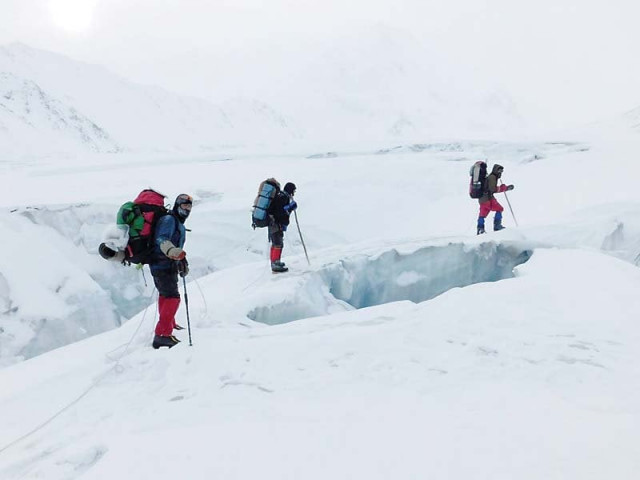
Mountaineers take part in the “Winter Glacier Conservancy Awareness Expedition 2017” to highlight depleting water resources caused by global warming. PHOTOS: EXPRESS
Get out of your house and stage a protest? Or perhaps march a bit to make the community aware of the problem and to attract the attention of the administration.
But what would you do when you want to attract the attention of an entire country or even a significant part of the world.
Would you walk 200 kilometeres over a bed ice and rocks with deep crevices?
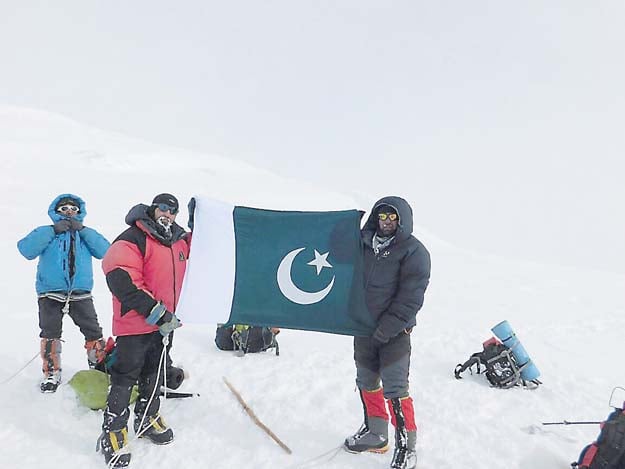
A group of young and intrepid mountaineers from Gojal valley, whose immediate surroundings have been bearing the brunt of climate change with a fast-receding snowline in recent years, trekked across the eight glaciers in Gilgit-Baltistan, braving extreme temperatures in an attempt to draw the world’s attention towards global warming and depleting water resources.
Titled “Winter Glacier Conservancy Awareness Expedition 2017”, it had been organised by the Pakistan Integrated Conservancy Programme (PIMCP), an initiative started by the young mountaineers and researchers from the Shimshal valley.
The mountaineers who took part in the expedition included Daulat Muhammad, Ali Rehmat, Hamiddullah, Syed Zaman, Adnan Ali, Reena Karim, and Reema Tahir.
The group initially consisted of 11 people – five of whom were researchers–who turned back halfway after collecting the necessary data.
The entire expedition lasted 13 days during which the mountaineers trekked almost 200 kilometres from Shimshal village to Askole village, which is located near the K2 basecamp in the Baltistan region – a region of highest concentration of glaciers outside the polar region.
They traversed the Mulungadi, Yazghail, Khudhopin, Braldu, Biafo and Snow Lake glaciers at an elevation of 5,700 meters.
“It was one of the most difficult expeditions that I have ever undertaken,” said Abdul Joshi, the team leader.
Joshi added that the average temperature during their expedition touched 40 degrees below freezing. “There were so many challenges during the expedition and that’s what made it special for all of us,” Joshi told The Express Tribune.
“The basic purpose of our expedition was to draw attention towards the depleting water resources,” he added as he implored the international community to act before it is too late.
They encountered crevasses and fissures at almost every step, requiring more courage than skill.
“It required courage just to keep your senses in check,” recalled Niamat Karim, who was also part of the expedition. “A slight miscalculation could land you inside a crevasse.”
The expedition was supported by the Agha Khan Rural Support Programme (AKRSP) and various sponsors.
Published in The Express Tribune, January 23rd, 2017.

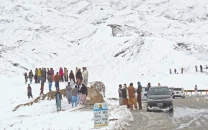
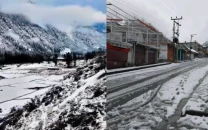


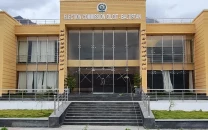












COMMENTS
Comments are moderated and generally will be posted if they are on-topic and not abusive.
For more information, please see our Comments FAQ